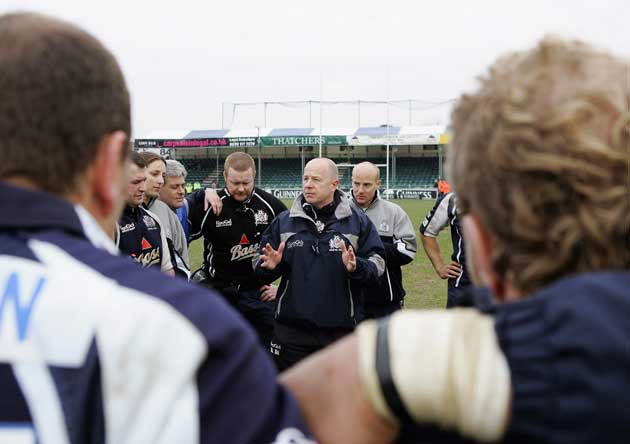Bristol unable to keep financial pace with 'big four' admits Hill

Your support helps us to tell the story
From reproductive rights to climate change to Big Tech, The Independent is on the ground when the story is developing. Whether it's investigating the financials of Elon Musk's pro-Trump PAC or producing our latest documentary, 'The A Word', which shines a light on the American women fighting for reproductive rights, we know how important it is to parse out the facts from the messaging.
At such a critical moment in US history, we need reporters on the ground. Your donation allows us to keep sending journalists to speak to both sides of the story.
The Independent is trusted by Americans across the entire political spectrum. And unlike many other quality news outlets, we choose not to lock Americans out of our reporting and analysis with paywalls. We believe quality journalism should be available to everyone, paid for by those who can afford it.
Your support makes all the difference.The widening gulf between rugby's haves and have-nots, which some fear will saddle the professional club game in England with a self-perpetuating elite along the lines of football's "big four", was put in worrying perspective yesterday by Richard Hill, the outstanding coach of Bristol. Hill tacitly admitted that the West Country club would start the new season more than £1m adrift of the likes of Gloucester and Leicester – or, to put in another way, at least 25 per cent down on spending power.
Under new salary cap regulations, teams can now spend around £4.4m on players' wages. Asked whether it was true that Bristol could afford only £3m, Hill replied: "You're in the right area." He added that only three clubs – Gloucester, Leicester and Wasps – had the resources to fight effectively on both the domestic and European fronts. For the rest, he said, it had to be one thing or the other.
"It's very difficult for a club at Bristol's stage of development to absorb the injuries that are bound to occur when you're playing Heineken Cup rugby as well as Premiership rugby," he explained. "Sale won the Premiership, then finished way down the table the following season because of the wear and tear they suffered in Europe. London Irish and Saracens reached the Heineken Cup semi-finals in April, but finished outside the top six in the Premiership and haven't qualified this time. We suffered a hell of a lot of injuries in the Heineken Cup last season. It was quite staggering, the way we were battered. Because of it, we fell away badly in the Premiership.
"I believe we can do a Gloucester here at Bristol," continued Hill, who was coaching at Kingsholm when the most powerful of the three West Country clubs began their rise to prominence a little over a decade ago. "We're a bigger city, we have a genuine rugby community and we've worked very hard to put our club at the centre of it. But we're a few years behind them and if the salary cap goes up again, we'll have no choice but to keep pace. It's tough fighting against the odds. While I think it ultimately makes for better players and better coaches, squeezing out the maximum week after week, money underpins success. Look at the big football teams, or the Olympic cycling team, which has had millions pumped into it. In the end, rugby is no different."
At one point during the summer, with Bristol preparing to take temporary leave of their Memorial Ground home and head for a season-long ground-share arrangement with Newport Gwent Dragons, they were ante-post favourites for relegation. Twenty-two away games with a squad boasting one solitary member of the England Saxons squad and no one at all in the 32-man elite international party? The bookmakers seemed to know a thing or two, as usual.
But redevelopment work at the Memorial Ground has been postponed, and Bristol are in the own back yard for the foreseeable future. "That will be very beneficial for us," Hill admitted. "We'd put a positive spin on going to Newport, but in reality, playing our rugby in familiar surroundings will be a big advantage."
Talking of Wales, there was fun and games yesterday when Roger Lewis, the group chief executive of the Welsh Rugby Union, found himself the target of some sharp criticism from his predecessor, David Moffett, over tentative moves to reintroduce a fifth professional regional team - possibly in the north of the country, where rugby union plays second fiddle to football.
Moffett, who led Wales into regionalisation in 2003 and ruthlessly disbanded the Celtic Warriors side by way of imposing a four-team format, said in a BBC radio interview: "Five regions can't be done. There aren't enough players and there isn't enough money. Roger Lewis needs reminding that he was nowhere to be seen when we went through one of the most tumultuous periods in Welsh rugby. He was handed everything on a plate."
Lewis has recently been quoted as saying that he would not have killed off the Warriors, a team based in Pontypridd and Bridgend and equipped with some of the best players in Wales.
Join our commenting forum
Join thought-provoking conversations, follow other Independent readers and see their replies
Comments